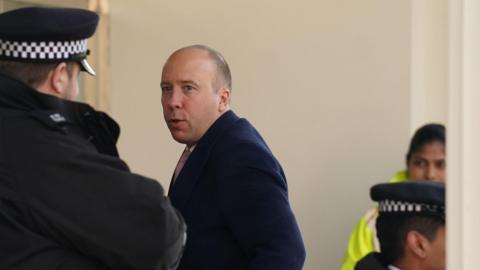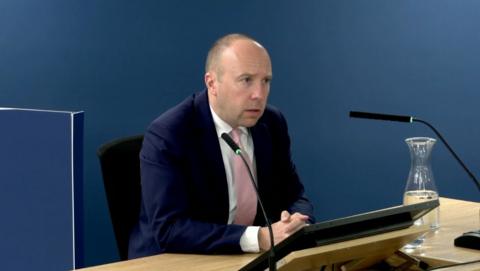Hancock was appearing for the fifth time at the Covid inquiry, which is now investigating the purchase and distribution of £15bn of PPE in the pandemic, along with testing kits, ventilators and other pieces of medical equipment.
He defended a public "call to arms" made at a Downing Street news conference on 10 April 2020 for more UK suppliers of PPE to come forward.
The inquiry has heard from previous witnesses, including the government's former chief commercial officer Sir Gareth Rhys Williams, that the appeal was counterproductive, leading to a large number of approaches which threatened to overwhelm the system.
"We were radically short of PPE [at the time] and the country was about to run out at a national level," Hancock told the inquiry.
"No-one has testified that the call to arms led to anything other than more PPE… So I stand by that."
The former health secretary was then asked about the High Priority Lane, or VIP lane, which was set up by officials in the Department of Health in England to help manage offers by prioritising those referred by an MP, member of the House of Lords or senior civil servant.
Hancock said he was not involved in designing the system, which he said had made him the target of an "enormous amount of conspiracy theories".
The inquiry commissioned an expert report from Prof Albert Sanchez-Graells, a professor of law at the University of Bristol, which was critical of the approach and found no evidence of similar prioritisation in Scotland, Wales, Northern Ireland, or other countries around the world.
"It's fine having academics write papers about this stuff… but you've got to understand what it was like [at the time]," said Hancock.
"The pressure to save lives was intense, but so was the reality that high-quality offers would be sent through to senior decision-makers, and you had to have a process for dealing with that."
He said that other countries would have had their own systems for prioritising offers for PPE and medical equipment in different ways.

